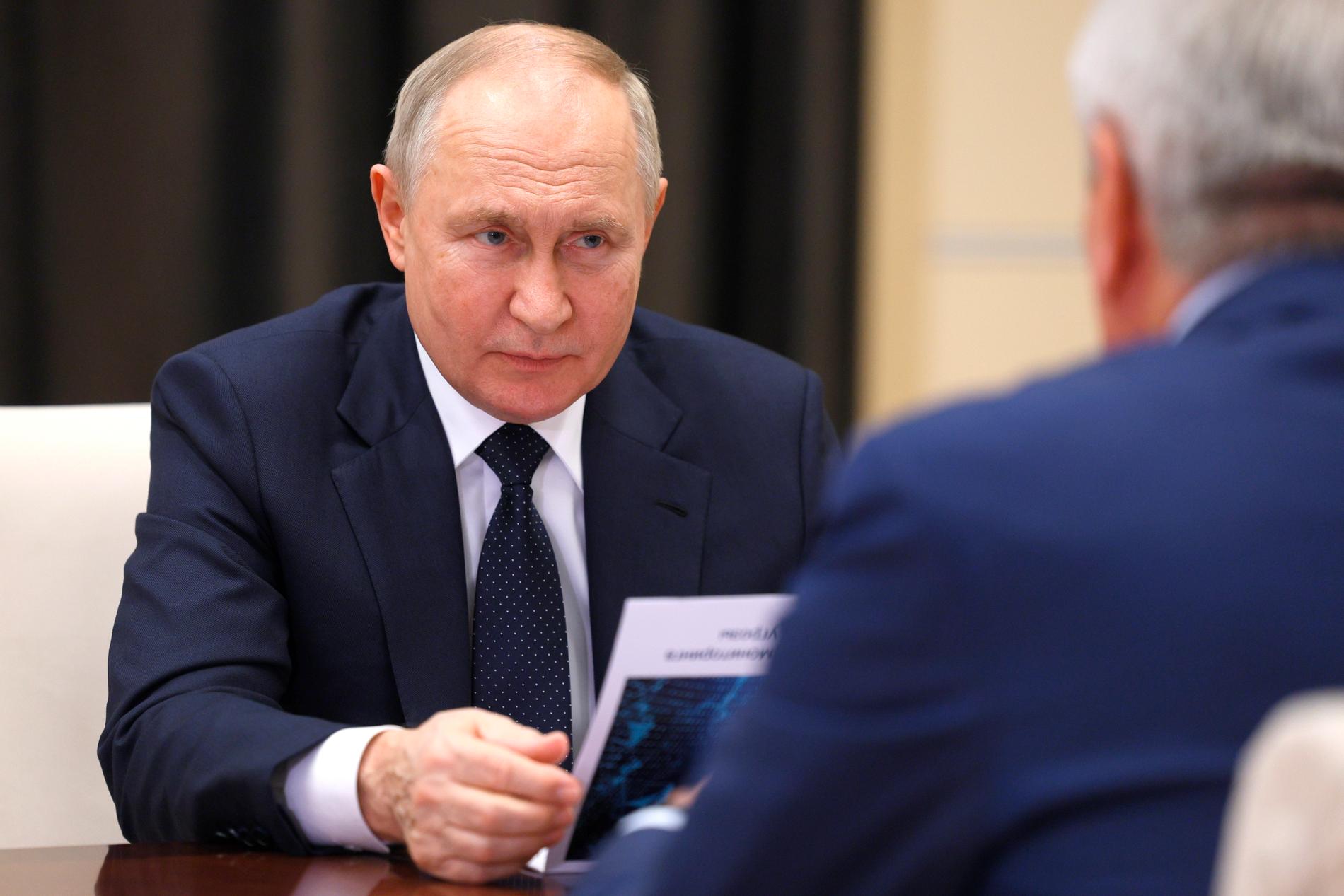On Friday, Russian Prime Minister Mikhail Mishustin appointed conductor Valery Gergiev as director of the Moscow Bolshoi Theater. The local media reported it. At the beginning of the millennium, the 70-year-old artist was one of the most sought-after conductors in the West, where his career was cut short by the Russian invasion of Ukraine. Gergiev refused to condemn her and remained loyal to President Vladimir Putin, whom he has long supported.
Since 1996, Gergiev has been head of another renowned opera and ballet scene, the Mariinsky Theater in St. Petersburg. Now, in addition, as director of the Bolshoi Theater in Moscow, he replaces Vladimir Urin, who at the beginning of the invasion was one of the 17 figures of Russian culture who signed an open letter against the war. Gergiev did no such thing then or later.
“Prime Minister Mikhail Mishustin signed the decree appointing Valery Gergiev as the general director of the Bolshoi Theater for five years,” confirmed a Russian government spokesman on Friday. According to him, the current director of the Moscow scene, Urin, himself asked to be dismissed from his position.
Deputy Prime Minister Tatjana Golikova said during a meeting with the ensemble of the Bolshoi Theater, according to the BBC, that Gergiev will lead both theaters at the same time, but this should not lead to their merger. “The Velké and Mariinsky theaters will exist as before, as separate theaters,” claims Golikova.
On November 17, the Russian edition of Forbes magazine reported that Urin had asked to be relieved of his duties, citing a source from the institution’s management. Urin managed it since 2013, and was supposed to remain in office until January 2027. According to Forbes, his fate was sealed this year at the beginning of the new season, when “it was clear that none of the leading cultural institutions who signed the letter against the ‘special operation’ would remain in function until the end of the year”.
Moscow refers to the war against Ukraine, which it launched 646 days ago, as a “special military operation”.
TV presenter and Putin’s opponent in the last presidential election, Xenia Sobchakova, wrote on the social network that Putin personally decided on the release of Urin, and Putin also personally decided on the appointment of Gergiev.
Shortly after the start of the war, the head of the Kremlin suggested to Gergiev that he should think about creating a joint management of both theaters on the model of the former Directorate of Tsarist Theaters, which existed until 1917. The president’s proposal was made after Urin signed the anti-war declaration of theater artists.
In September of this year, Urin was unusually outspoken in the government newspaper Rossiiskaja gazeta about wartime censorship of repertoire and the removal of artists’ names from posters because they were against the war.
For example, in April of this year, the Bolshoi Theater withdrew director Kirill Serebrennikov’s Nureyev ballet from its program. At the time, Urin explained it with a law prohibiting the alleged promotion of homosexuality. Another performance directed by the dissident Serebrennikov, now living in exile, was canceled by the theater without explanation, adds the BBC.
Valery Gergiev told journalists about his possible appointment last month that he will soon have twice as much work, although he has had enough without it and is not looking for other job opportunities.
Conductor Valery Gergiev (right) has been friends with Russian President Vladimir Putin since the 1990s. | Photo: ČTK/AP
As a student at the conservatory, Gergiev won the prestigious Herbert von Karajan conducting competition. From 2007 to 2015, he was the principal conductor of the London Symphony Orchestra and subsequently the chief conductor of the Munich Philharmonic. He regularly collaborated with the New York Metropolitan Opera, the Vienna Philharmonic and the Milan Philarmonica della Scala orchestra.
In the spring of 2022, however, he lost most of the opportunities to perform in the West, as well as the position at the head of the Munich Philharmonic, because, according to the mayor of the German city, he refused to clearly condemn the war in Ukraine. Immediately after the attack on Ukraine, the conductor did not perform at the planned concerts with the Vienna Philharmonic in New York, and later the organizers of the Dvořák Prague festival also canceled his performance.
Gergiev and Putin have spoken more than once about knowing each other since the early 1990s. The conductor was Putin’s confidant in the presidential elections of 2012 and 2018. Gergiev also consistently supported the Kremlin’s policy, after the end of the Russian-Georgian war in 2008 he performed in the capital of separatist South Ossetia, in 2016 again in Palmyra, Syria, and in the meantime supported the Russian annexation of the Ukrainian Crimea. Since the beginning of the current war, the orchestra of the Mariinsky Theater under Gergiev’s direction has given concerts in support of the families of Russian soldiers fighting against Ukraine.
The Agency server wrote in July this year that the profit of Gergiev’s fund in the first year of the war increased fourfold, from 138 to 578 million rubles, converted from about 34 to 143 million crowns. The volume of state contracts of the fund reached 72.2 million rubles last year, 67.7 million rubles in the first half of this year, adds the BBC on its Russian-language website.
Video: Banning Russian artists makes sense, says Putna
“Truth is what the tsar wants. What creates a good image of Russia,” professor and literary historian Martin C. Putna told DVTV last year shortly after the start of the Russian war. | Video: Daniela Písařovicová

